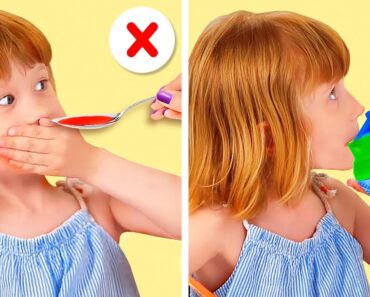If you or a close family member is experiencing a mental health crisis, it might be scary or confusing for your kids. Here’s an age-by-age guide to help you know what to say.
If you have a mental illness, or someone close to your child is struggling with their mental health, you may wonder if you should talk to your child about it. A person with mental illness may behave erratically or may withdraw, and that can lead to the child thinking they’ve done something wrong. So a conversation can feel like a good idea.
As a child psychologist, I’m often asked: What is the best way to have this chat?
There is of course no simple answer. It depends on a child’s age, their level of maturity. It even depends on their current circumstances; for example, we never want children to adopt the role of parent to their parents, and we never want children to feel like they are somehow to blame for how their parents are feeling. Sometimes though, circumstances would require the child to have some understanding of what is happening. This is especially true if they need to stay with an extended family member temporarily during a parent’s treatment.
If you choose to discuss mental illness with your child, here are some guidelines, depending on their age:
Toddlers and preschoolers (ages 1 to 3)
Children this young do not need to know about a diagnosis. This is a time to shelter stress, as much as is possible, from your child. If you are the person struggling, be sure to ask family and friends to come in and help you with your parenting responsibilities as much as possible. The idea here is to try and make things as normal as possible for the child.
Kindergarteners (ages 4 to 6)
Children this young should be sheltered similarly to preschool children, except they could likely handle you explaining something along the lines of, “They are not feeling well right now. Sometimes this happens. However, they will bounce back.” It is important to reassure them and tell them not to worry. Explain that the loved one is getting help and should be better soon.
Mid-schoolagers (ages 7 to 9)
Children at this age could manage to know a little more. You could explain that the loved one is struggling with their mental health, “struggling to feel well in their mind” or “in their heart.” It will still be very important to reassure them, be clear that this is not their fault in any way, and explain that this person is getting the best help available. Leave them with a feeling of hope that things will be better soon.
Older schoolagers and middle-schoolers (ages 10 to 12)
These kids can handle a name or a diagnosis for what the loved one is facing. You could say, “They have an illness called depression. It means that they have deep feelings of sadness inside that they cannot easily shake off. It drains them of their energy and makes them want to sleep all the time. It is nobody’s fault. It is not their fault, and it is certainly not your fault!” Give your child hope that things will be better soon.
Adolescents (14+)
This is the time to have the kind of conversation you may have been wanting to have with your child for a while. They can handle more detailed information. It’s generally an appropriate time to explain the medical basis for mental illness. You can talk about genetic factors and environmental factors. You could explain in more depth the treatments the loved one is receiving. You can give your children updates on how they are doing and what the medical professionals are suggesting. You can also ask a child of this age for a little assistance. If it is a parent that is struggling, it is okay to ask the older child to help around the house. Ask them to go for walks with you. Allow them a sense of agency and give them a way to participate in the family’s goal of getting them better. This is also the time to talk to your adolescent children about any genetic risk factors they may have inherited and what to be on the lookout for in their own lives. Talk about what it means to practice good mental health care.
When the time is right, I would encourage you to bring the notion of advocacy into these discussions with your children. Discuss how your family can raise awareness about mental health and spread the message that the world needs to lose the stigma and focus on getting help to those who need it.
Dr. Jillian Roberts is the author of Calm, a book about how to model effective emotional regulation strategies to the youngest of readers. Dr. Roberts writes to help families face the complex issues of our modern world and has thirteen books on these topics available on Amazon.

































